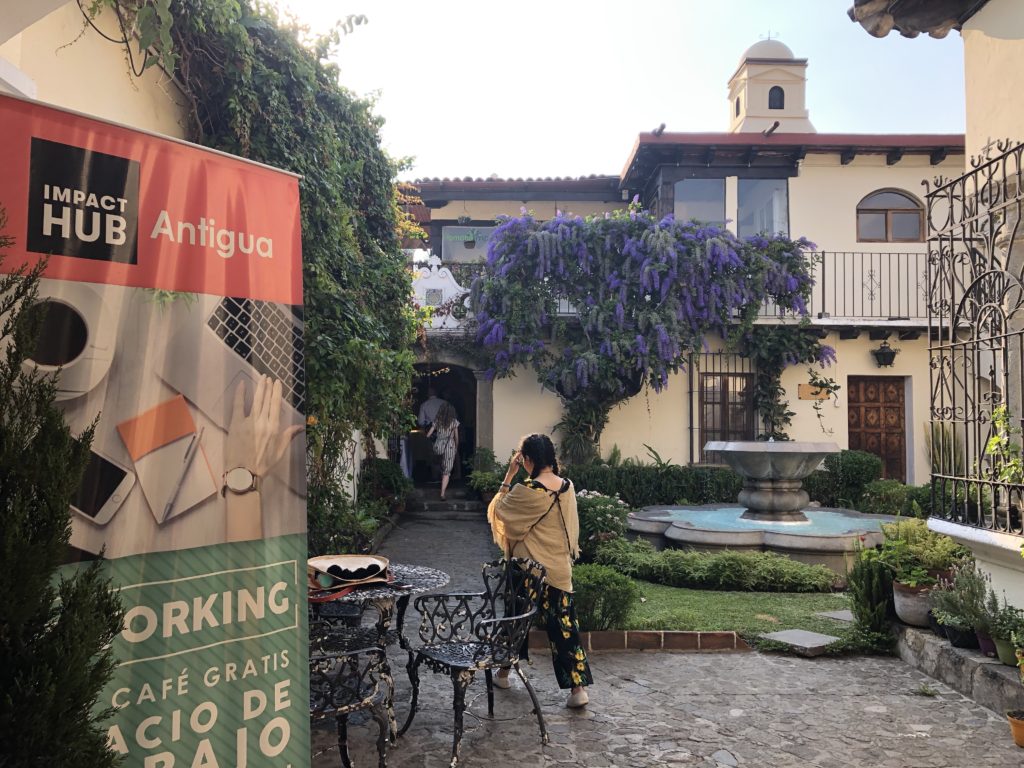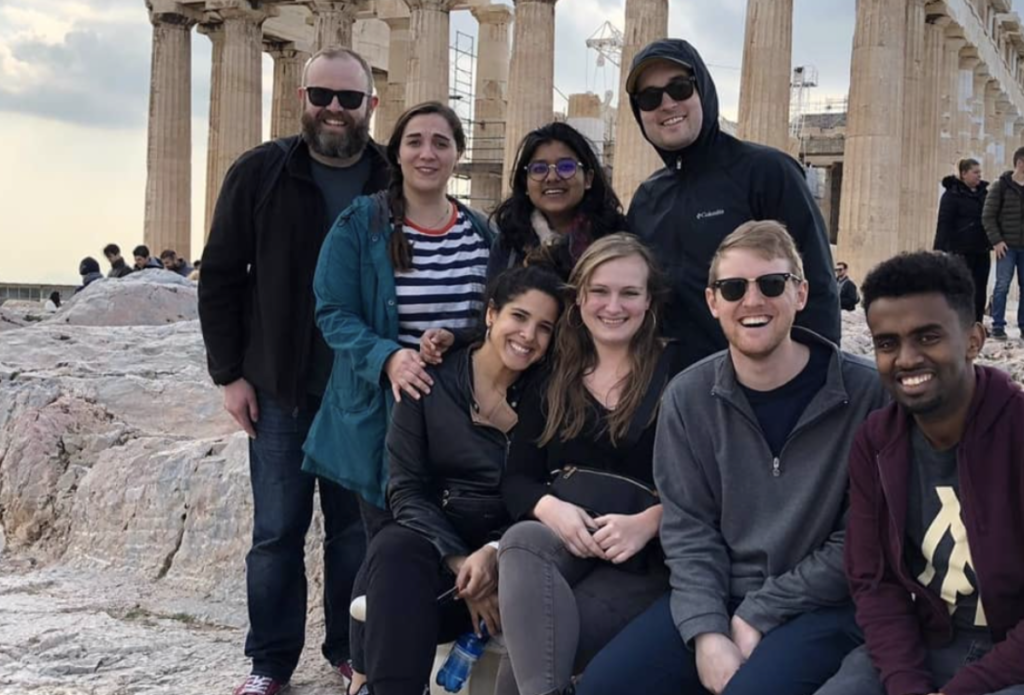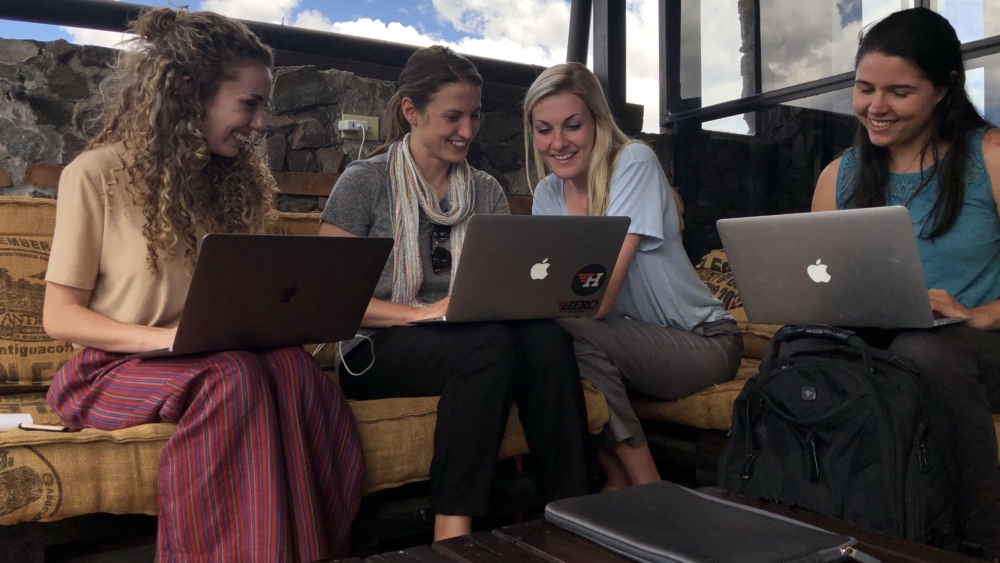A Boarding Pass to Social Change

Where can a flight across knowledge borders of basic economics take you? This semester I was welcomed aboard Vanderbilt flight, MGT 6552, from Owen Graduate School of Management to a better understanding of social impact and the social economy. Where did that take my perceptions about poverty and its alleviation? I wish it was plain and simple, but I will try to capture the eye-bird takeaways.
A Journey of Inspiration
The MGT 6552 class (or Project Pyramid) is an interdisciplinary course that flies at the speed of 3000 perspectives per class. The class facilitates opportunities to explore various perspectives on enterprise and innovation for poverty alleviation. As a passenger on this learning experience, I had the windows to examine the role of social enterprises in poverty alleviation through classroom discussions, guest speakers lectures, an immersive onsite experience, interactions with International partners, and working within a diverse multidisciplinary team.
What’s Social Enterprise Anyway?
Throughout 16 weeks of class, our class captains Bart Vector, Mario Avila, and Jim Schorr took us through a nonstop journey to a sweet spot between social impact and business value. As a part-social-part-business typology, social enterprise blends the traditional boundaries between non-profits and the private sector. Unlike nonprofits, social enterprises rely on sustainable revenue instead of relying on funding in the form of donations; and unlike for-profits, social enterprises’ main motivation is social impact. In other words, social entrepreneurs balance the tension between carrying out a social mission and being sustainably profitable.
To elaborate, social enterprises exist to achieve a social mission like poverty alleviation, providing education access to the poor, resolving healthcare gaps in underserved areas. Nonetheless, this new social enterprise phenomenon is fuzzy; what is considered a social issue? Where is the balancing point between social and business? How deep down the Bottom of the Pyramid do we need to go to be considered social? The debate is endless and the term remains vague, but what is evident is that these small organizations are seeking big systematic changes.
Small Organizations, Big Questions
My team and I worked with WELCOMMON, a social cooperative in Athens that supports refugee populations with an ambition of integrating them into the Greek society and empowering them to be self-sufficient. Working with WELCOMMON showed us how social enterprises can be the most forceful social-change agents. As you might know, the Greek economy was already fragile when the influx of refugees and migrants exacerbated the devastating economic effects. WELCOMMON is determinedly working to affect a system-level impact on Greek’s stressed economy by addressing the refugee crisis. We were influenced by the way this small organization was asking big questions of systems change, and we were challenged in supporting their vision to build a more systematic and scalable business while remaining mission-focused and customer-centric.
Social Enterprise Consulting
Within the Project Pyramid class we were a total of 10 teams working with 9 social enterprises across 4 countries both remotely and onsite. I had a unique opportunity of working with our partner organization, WELCOMMON, in Greece while exploring alternative business models in Guatemala. Before taking off with our clients, we learned about social enterprise consulting and how to work with clients using frameworks like the Social Business Model Canvas, Logic Modeling, and the Answer First Framework. We were encouraged to take a human-centered approach in collaborating with our partners to craft profit-and-purpose strategies.
Business as a Second Language
As consultants to WELCOMMON, we were challenged by a language barrier. This was not limited to English language fluency of WELCOMMON’s staff and volunteers team. It was us too! We were a multidisciplinary team coming from different schools and disciplines; Economics, Higher Education, Leadership and Organizational Performance, and MBA. We recognized, early on, the importance of harnessing the best of our talents and understanding the “language” of other schools of thought.
It was a bumpy ride at first, but keying on everyone’s unique strengths helped us to have a common understanding and frame our arguments to reach the right strategic decisions for our partner. Nonetheless, we faced the most turbulence in communicating our solutions to the WELCOMMON team. The challenge was translating complex business strategies in simple messages that can move our stakeholders to action. Tough! More than our fancy slide decks and elaborate business recommendations, what helped us the most was asking first and seeking to understand before being understood.
In the end, the Project Pyramid and our immersive experience with our respective social enterprise partners showed us how social enterprise is a gateway to bigger systematic changes. Regardless of the social and economic baggage, social enterprise will carry on pursuing their missions while keeping a scalable business model. In working with social ventures, we are ought to be respective of their missions and speak their language to land on practical recommendations. Finally, social enterprise consulting is a flight I enjoyed on boarding 🙂 – Thank you, Project Pyramid team.

